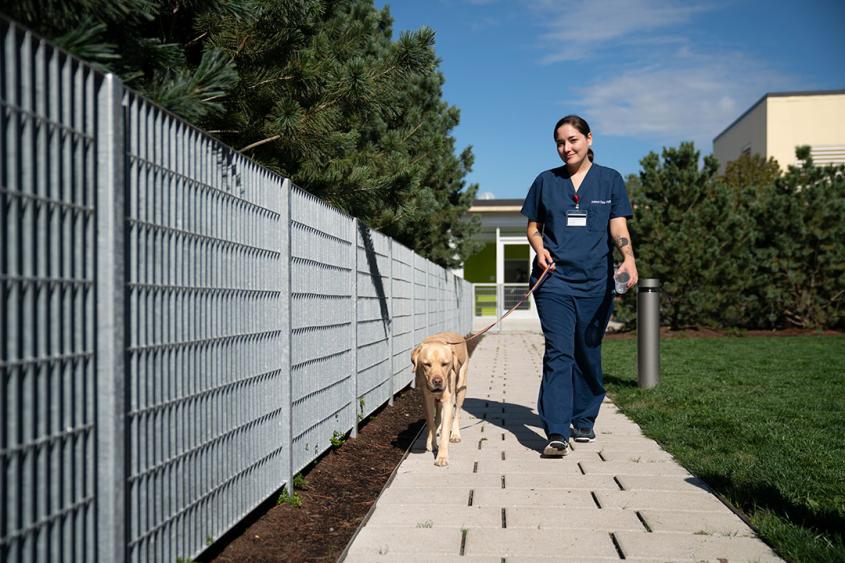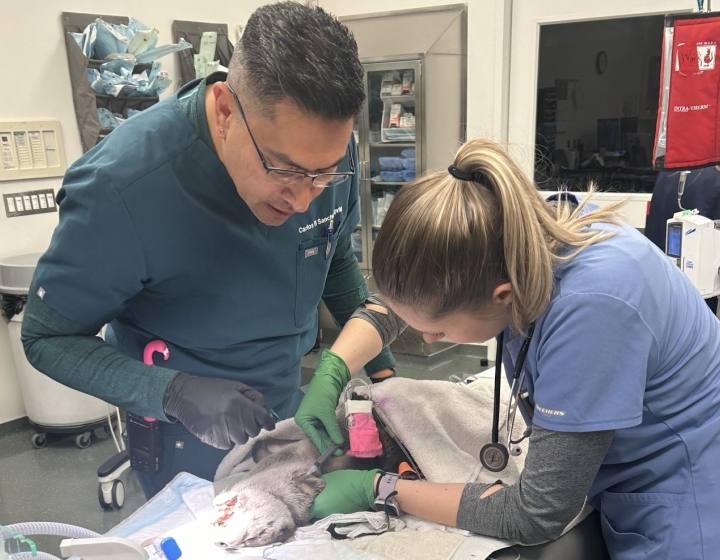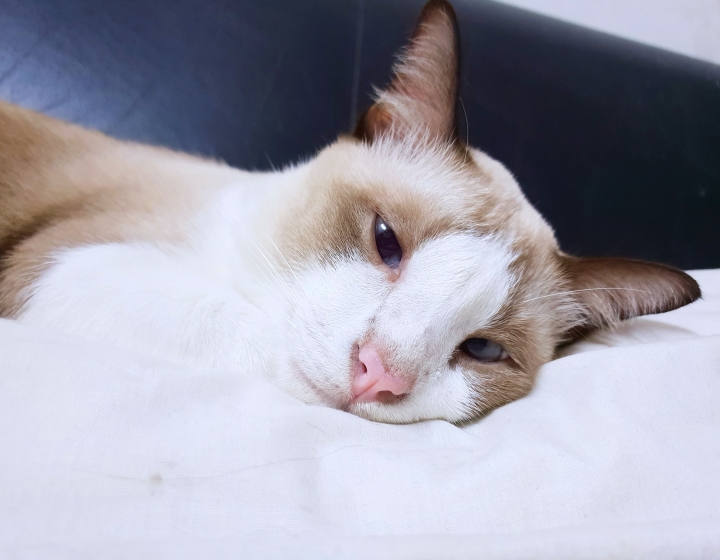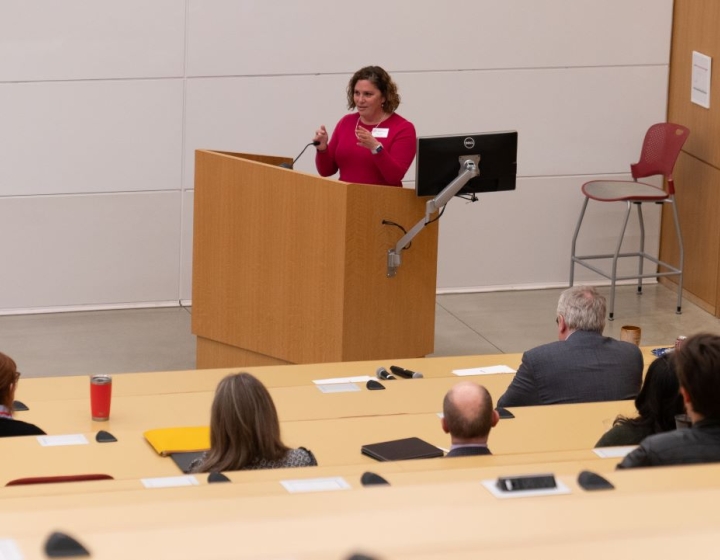College celebrates veterinary technicians and staff
This week, the College of Veterinary Medicine celebrated Licensed Veterinary Technician Appreciation Week, a national holiday that runs from October 14-20.
“The licensed veterinary technicians (LVTs) and staff at our hospitals are dedicated members of our team,” said Dr. Meg Thompson, director of the Cornell University Hospital for Animals (CUHA). The nationwide event was created by the American Veterinary Medical Association to recognize the vital role of LVTs. The college expanded its classification of the event to include staff at the hospital to acknowledge how both LVTs and staff contribute to patient care, client experience, student training and support the research mission of the college.
CUHA comprises five clinical units in Ithaca, which treat everything from companion animals to farm animals. There is also a satellite hospital on Long Island, Cornell Ruffian Equine Specialists, and together they saw a combined total of almost 80,000 patients in the last year. Keeping things running smoothly and safely can be a complicated endeavor, and impossible without the expertise of LVTs and staff.
Dedication to all patients
Tina Hlywa has been an LVT with the Janet L. Swanson Wildlife Health Center for the last 11 years, and first came to Cornell in 2000 to work in the intermediate nursing care unit. “I chose to join this unit to broaden my technical skills beyond the lab and gain more hands-on animal experience in a clinical setting,” said Hlywa.
LVTs specialize in everything from imaging to wildlife. They run MRIs, monitor patients during anesthesia and provide treatments to animals of all shapes and sizes.
“To help an animal, and ultimately to know that my skills have helped that animal return to a life in the wild, is the most amazing feeling,” said Hlywa.
Laura Barlow, LVT in the oncology section, joined the CUHA team in 1992 as a surgery technician. Before that, she trained at Cornell with ophthalmology, pharmacy and internal medicine. Since then, Barlow has worked in the sections of internal medicine and oncology and has assisted with the blood donor program for many years in addition to shifts in the intensive care unit.
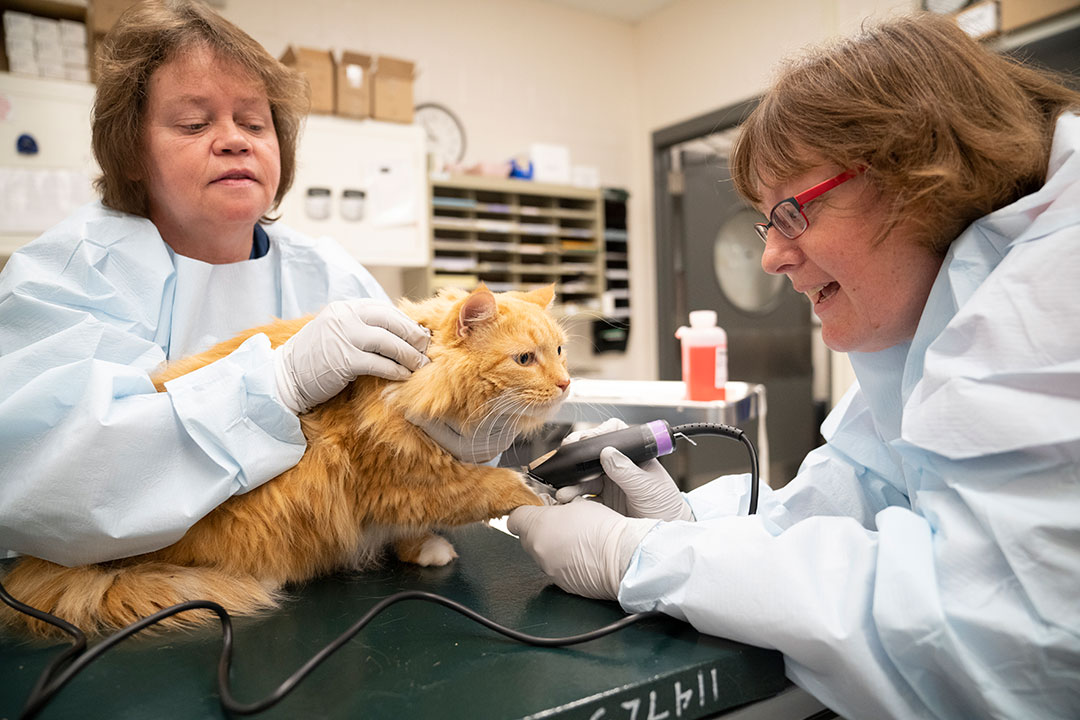
“You can say I’ve been around the block,” said Barlow, who recalled her first day on the job as an especially eventful one. As she arrived, even before she was able to check in with her supervisor, another department pulled her away to assist in an emergency case. They needed her help and a coworker recognized her from her time at CUHA during her training. “It did make me late to my real position, but my supervisor was happy I helped the other service out,” she said. “I knew then that I made the right choice to work here.”
Judith Sobczak agreed. The LVT joined the large animal surgery department in 1989 and described experiencing her first day with a ride range of emotions – excitement, anxiety, happiness. “Coming from the world of private practice, working at Cornell was a huge step!” she said.
Core processes and key staff
Staff members at CUHA have equally diverse and demanding roles. Handling everything from hospital operations and billing to managing supplies and the intake of hundreds of patients a week, hospital staff keep everything running smoothly.
Said Thompson, “Our staff’s flexibility, hardworking dedication, knowledge of their jobs and belief in the good we do every day keeps everyone dedicated to the college mission ‘to lead, enable and inspire others to attain a healthier world for animals and people.’”
“Every day is different,” said Marcy Benda, assistant to the hospital director. Benda began her career at Cornell as a temp in 1999, answering calls and admitting clients for six months. She then moved into the discharge office for four years and worked in various positions before starting in her current role. “The hospital has changed considerably,” she said. “The phone room was separate from admissions. Pharmacy did their own charges to clients. The discharge office consisted of only two people. Now there are more clients, more services. There is never a dull moment!”
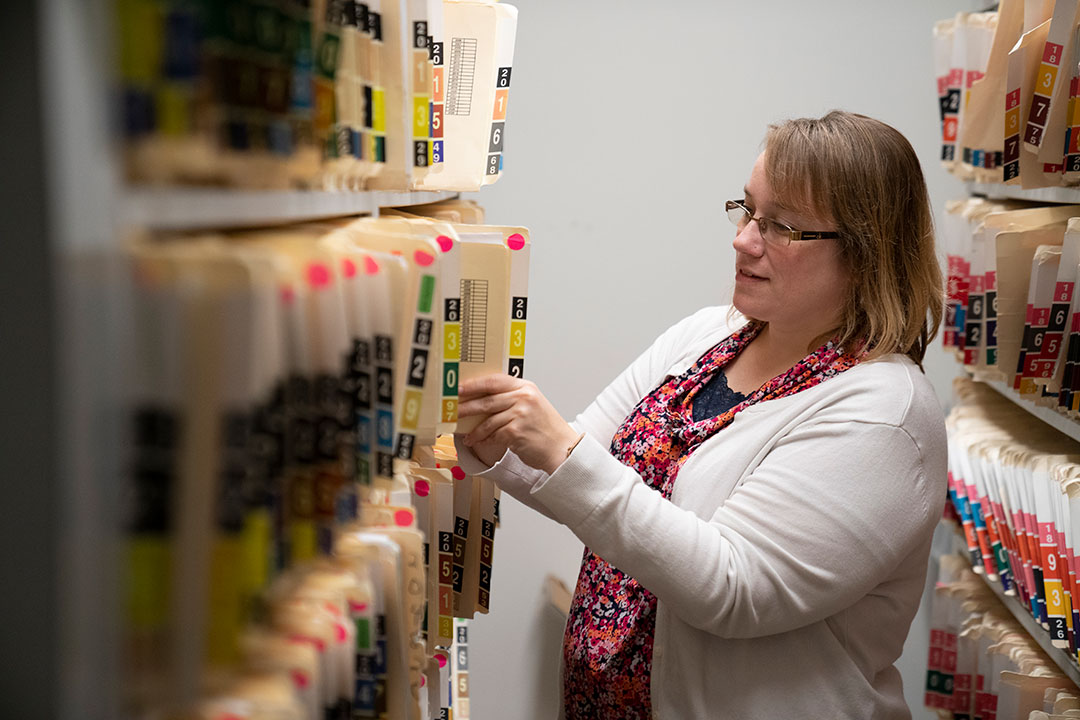
This summer has been an especially busy one for everyone at CUHA. Not only did the college open Cornell’s new Small Animal Community Practice, but it is rolling out new practice management software, a cloud-based, commercial software called ezyVet. This software will replace UVIS, an older records system used by the hospital since 2007. Dozens of staff have been involved in the complicated endeavor of switching products, services and workflows from one system to the next, preparing for the go-live date of October 23.
“Spearheading the transition between UVIS and ezyVet has been challenging, but rewarding,” said Daniela Mancuso, clinical and business workflow project manager and one of the primary drivers of the shift. Mancuso joined CUHA in 2016 and over the last year has been leading the ezyVet project team toward its ambitious launch date. “Our team has been able to come together and move complicated data, understand new workflow needs and train the CUHA community. This effort moves us toward a modern system which will provide us new great features like a client portal, appointment reminders, a two-way referral communication process and so much more!”
Working toward one goal
Patients and clients remain front of mind for both LVTs and staff members, who are instrumental in maintaining those relationships throughout each busy day at CUHA. For a technician like Barlow, who works in a department that can see the same patients as often as once a week, interactions with clients is a priority. “They become family in many cases,” said Barlow, who pinpointed her patients as being one of the most rewarding parts of her job. “I love all of my patients deeply, and I have a special fondness for the misunderstood, fearful and in some cases aggressive dogs. They need a friend to trust in and I try hard to bond with them in the hopes of making their visits a little easier.”
“Our staff and clinicians care about each other, the veterinary students and the patients we treat,” said Benda. “They work hard daily to serve patients and work to find cures for illnesses.”
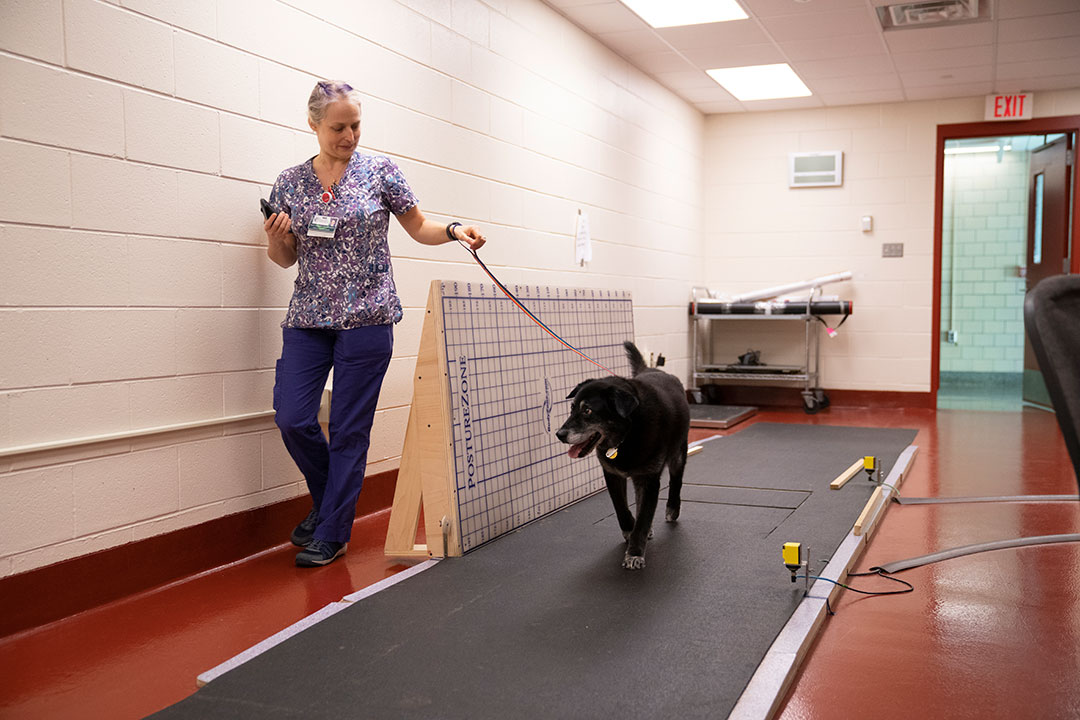
“Working in the Wildlife Health Center at Cornell for these last eleven years has been the best experience in my career,” said Hlywa. “For me it is the best of both worlds. I can work with the species that I love while maintaining and building my skills as the most well-rounded technician I can be.”
“As Cornell is a teaching hospital and world class research institution, it isn't surprising that many new and improved ways of dealing with large animal diseases and surgical techniques have been developed right here in Ithaca,” said Sobczak.
Extending the appreciation week across LVTs and staff members underscores their key roles at the hospital and the college as a whole. Said Benda, “All of us working well together keeps Cornell a great place to take your pets and a great place to work.”
By Melanie Greaver Cordova



